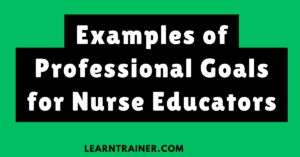Understanding reflexive pronouns can be a bit tricky for English learners, but once you break it down, they’re not as difficult as they might first seem.
A reflexive pronoun is used when the subject and object of a sentence refer to the same person or thing. In other words, reflexive pronouns reflect the action back to the subject.
For example, in the sentence “I taught myself to play the guitar,” myself is a reflexive pronoun because it refers back to I.
In this blog post, we’ll explore reflexive pronouns in depth. I’ll provide you with 37 sentences that demonstrate how to use these pronouns in different contexts.
By the end of this article, you’ll have a clear understanding of reflexive pronouns and how to use them effectively in your own writing and conversations.
What Are Reflexive Pronouns?
Before we dive into the sentences, let’s take a moment to define reflexive pronouns more clearly. Reflexive pronouns are used when the subject of a sentence performs an action on itself. They always end in -self (singular) or -selves (plural).
Here are the reflexive pronouns in English:
- myself (first person singular)
- yourself (second person singular)
- himself / herself / itself (third person singular)
- ourselves (first person plural)
- yourselves (second person plural)
- themselves (third person plural)
For example, in the sentence “She looked at herself in the mirror,” “herself” refers back to “she.”
When to Use Reflexive Pronouns
Reflexive pronouns are used in various scenarios. They can be used for:
- Actions done to oneself:I cut myself while cooking.
- Emphasis on the subject:I made this decision myself.
- Reciprocal actions (when two or more people do something to each other):They looked at each other in surprise.
In the next section, we’ll look at some sentences that illustrate these uses.
Examples of Reflexive Pronouns in Action
Here are 37 sentences that will help you understand how to use reflexive pronouns correctly.
| Sentence | Explanation | Reflexive Pronoun |
| 1. I made the cake myself. | The subject “I” is the one who performed the action, and “myself” refers back to “I.” | myself |
| 2. She fixed the car herself. | “She” is both the subject and the one performing the action on herself. | herself |
| 3. You should be proud of yourself. | “You” refers to the person being spoken to, and “yourself” emphasizes that pride is deserved by the person alone. | yourself |
| 4. We organized the event ourselves. | The action is performed by the subject “we,” and “ourselves” refers back to them. | ourselves |
| 5. They taught themselves how to code. | The action of learning is done by “them,” and “themselves” reflects back to the subject. | themselves |
| 6. He looked at himself in the mirror. | “He” is the subject who is looking at his own reflection. | himself |
| 7. The dog groomed itself after the walk. | The dog is grooming itself, meaning the action reflects back to the subject. | itself |
| 8. I accidentally hurt myself while hiking. | “I” hurt the subject, which is “myself.” The action is reflected back to the speaker. | myself |
| 9. We should challenge ourselves more. | “We” refers to the group challenging itself. | ourselves |
| 10. She enjoyed herself at the party. | “She” had a good time at the party, meaning the enjoyment is reflected on her. | herself |
| 11. The children dressed themselves for school. | The action of dressing is performed by the children on themselves. | themselves |
| 12. You’ve proven yourself to be capable. | “You” has demonstrated its ability, and “yourself” emphasizes the subject. | yourself |
| 13. He treated himself to a fancy dinner. | The action of treating is done by “him” to “himself.” | himself |
| 14. They prepared themselves for the worst. | “They” took action to prepare, and “themselves” reflects back to them. | themselves |
| 15. I saw myself in the reflection of the window. | “I” observed its own image in the reflection. | myself |
| 16. She blamed herself for the mistake. | “She” takes responsibility for the error, and “herself” refers back to her. | herself |
| 17. You need to believe in yourself. | The speaker encourages “you” to have self-confidence. | yourself |
| 18. We enjoyed ourselves at the concert. | “We” had a good time at the concert, with “ourselves” emphasizing the subject. | ourselves |
| 19. I promised myself I would be more organized. | “I” made a personal promise to “myself.” | myself |
| 20. The cat cleaned itself after eating. | The cat is performing the action of cleaning on itself. | itself |
| 21. You should challenge yourself to do better next time. | The speaker is urging “you” to push your own limits. | yourself |
| 22. He prepared himself for the interview. | “He” made preparations for the interview, reflecting back on himself. | himself |
| 23. They enjoyed themselves at the festival. | “They” are having a good time at the event, and “themselves” refers back to them. | themselves |
| 24. We can do it ourselves without help. | “We” are capable of doing something independently, emphasizing the subject. | ourselves |
| 25. She found herself in a difficult situation. | “She” realized her own predicament. | herself |
| 26. I cut myself while shaving. | “I” accidentally injured myself. | myself |
| 27. They had to push themselves to finish the project. | “They” exerted effort to complete the task. | themselves |
| 28. I’m proud of myself for completing the marathon. | “I” am proud of my own accomplishment. | myself |
| 29. You should congratulate yourself for the achievement. | The speaker encourages “you” to recognize your own success. | yourself |
| 30. He looked at himself in the mirror and smiled. | “He” admires his own reflection. | himself |
| 31. She promised herself to never give up. | “She” made a commitment to herself. | herself |
| 32. They helped themselves to the snacks. | “They” served themselves the food. | themselves |
| 33. We told ourselves it was okay to take a break. | “We” reassured ourselves that resting was fine. | ourselves |
| 34. He lost himself in the music. | “He” became absorbed by the music, with “himself” reflecting the subject’s engagement. | himself |
| 35. You should treat yourself to something nice. | The speaker encourages “you” to indulge in something for personal enjoyment. | yourself |
| 36. I taught myself how to cook. | “I” learned cooking independently. | myself |
| 37. The team motivated themselves to keep going. | “They” inspired their own determination. | themselves |
Common Mistakes to Avoid
While reflexive pronouns are easy to understand, there are a few common mistakes that English learners often make. Here are a few to watch out for:
- Using reflexive pronouns incorrectly:
Incorrect: “She cooked dinner to herself.”
Correct: “She cooked dinner for herself.”
Reflexive pronouns should not be used for indirect objects, unless the action is being done to the subject.
- Using reflexive pronouns when not necessary:
Incorrect: “I gave the gift to myself.”
Correct: “I gave the gift to me.”
Reflexive pronouns are only necessary when the subject and object refer to the same entity.
- Confusing reflexive pronouns with regular pronouns:
Incorrect: “He was talking to himself in the meeting.”
Correct: “He was talking to him in the meeting.”
Reflexive pronouns should only be used when the subject and object refer to the same person.
Conclusion
Reflexive pronouns are a powerful tool in English grammar, and when used correctly, they can help you convey clear and precise meanings. Remember that reflexive pronouns always refer back to the subject of the sentence and are used when the action of the subject reflects back on itself.
- Reflexive pronouns refer back to the subject of the sentence.
- They are used for actions performed on oneself, for emphasis, or in reciprocal actions.
- Common reflexive pronouns include myself, yourself, himself, herself, itself, ourselves, yourselves, and themselves.
- Avoid using reflexive pronouns when they are not necessary, and ensure you’re using them correctly to avoid confusion.
By practicing with the 37 sentences I’ve provided, you should now have a better understanding of how to use reflexive pronouns in everyday language.


